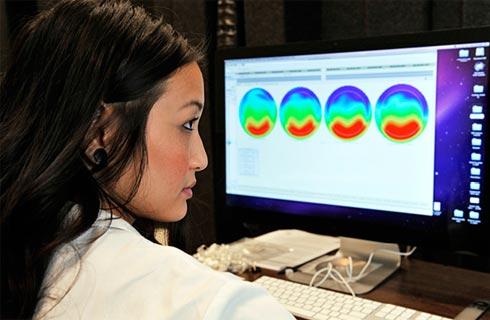Bachelor of Arts in Philosophy - Law, Ethics, and Society

学历文凭
Bachelor Degree

专业院系
哲学

开学时间

课程时长

课程学费

国际学生入学条件
To be considered for admission, you must have completed secondary school with a superior average in academic subjects and have earned a certificate of completion that enables you to be admitted to a university in your home country and is equivalent to a U.S. high school diploma.
Non-California residents, including International applicants, must earn a GPA of 3.4 (or better) with no grade lower than a "C."
Internet-based- 83
Paper-based- 550
IELTS minimum score of 7 (Academic module)
IDP—雅思考试联合主办方

雅思考试总分
7.0
了解更多
- 雅思总分:7
- 托福网考总分:83
- 托福笔试总分:550
- 其他语言考试:Duolingo English Test (DET): Minimum score of 115
CRICOS代码:
申请截止日期:请 与IDP联系 以获取详细信息。
课程简介
This area targets the nature and source of our moral rights and obligations, the authority of the state and law, the basis of value and goodness. Several courses in this area target ethical issues in medicine, the environment, technological change, economic inequality, and matters concerning race, gender, class, ethnicity, and nationality. In this area, students will learn how moral and legal reasoning can reshape the political debates over abortion, the death penalty, privacy on the internet, genetic testing, religious tolerance, free speech, affirmative action, and other issues. Philosophy also seeks answers to particular problems in specific areas of science, medicine, law, ethics, and technology. For example, it explores the ways that modern physics impacts our notions of space, time, causation, and nature itself. It considers the ways that neuroscience and genetics impact the traditional ideas about free will and responsibility. It debates the limits of democratic governments in regulating individuals conduct. It wrestles with problems about the right to die and the varied responsibilities of medical professionals. It inquires into the relation between science and religion. Related issues concern privacy, the limits of private property, and who should have access to what information. Philosophy is a broad field with diverse subfields. Some students may want to pursue a general course of study for the major, sampling courses across several of these distinct subfields. This strategy develops a solid foundation for graduate work in philosophy and for any career that requires breadth of knowledge, intellectual flexibility, as well as communicative and analytic skills.
相关申请

预科

奖学金

实习机会

在校学习

跨境学习

校园授课-线上开始

在线/远程学习
学校排名
世界排名
30
数据源:泰晤士高等教育世界大学排名
本校相关课程
Master of Arts in Music

学历文凭
Masters Degree
下一个开始日期
课程费用总额
Master of Business Administration

学历文凭
Masters Degree
下一个开始日期
课程费用总额
Master of Fine Arts in Writing

学历文凭
Masters Degree
下一个开始日期
课程费用总额
Master of Arts in Latin American Studies

学历文凭
Masters Degree
下一个开始日期
课程费用总额
Master of Arts in History

学历文凭
Masters Degree
下一个开始日期
课程费用总额
Master of Arts in Global Health

学历文凭
Masters Degree
下一个开始日期
课程费用总额
其他相关课程
哲学哲学博士

滑铁卢大学
泰晤士高等教育世界大学排名:

学历文凭
Ph.D.
下一个开始日期
课程费用总额
哲学硕士

滑铁卢大学
泰晤士高等教育世界大学排名:

学历文凭
Masters Degree
下一个开始日期
课程费用总额
哲学艺术学士[一般]

滑铁卢大学
泰晤士高等教育世界大学排名:

学历文凭
Bachelor Degree
下一个开始日期
课程费用总额
哲学硕士

达尔豪斯大学
泰晤士高等教育世界大学排名:

学历文凭
Masters Degree
下一个开始日期
课程费用总额
哲学学士

温尼伯大学
泰晤士高等教育世界大学排名:

学历文凭
Bachelor Degree
下一个开始日期
课程费用总额
哲学学士

爱德华王子岛大学
泰晤士高等教育世界大学排名:

学历文凭
Bachelor Degree
下一个开始日期
课程费用总额





